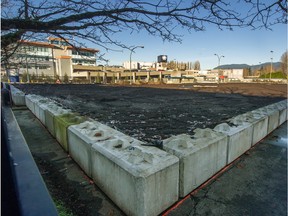
Article content
Re: ‘The price of dirt’ governs home prices in hot markets
We used to buy land as the foundation for a home for ourselves and our families. Many current buyers of our urban “dirt” will never live on it. Land in our hot housing market has become a commodity for buyers who expect to earn revenue from it, or to profit from its increasing value.
Article content
Perhaps they are planning daily or weekly rentals to tourists. Perhaps they want a vacation spot for themselves. Perhaps they will build high-end housing affordable only to other wealthy buyers. After their purchase, such investors feel confident they need only wait and watch the value of their “dirt” rise.
Advertisement 2
Article content
We are losing so many community members who can no longer afford to live here. It is important to continue to squeeze investors who have turned our local housing into a stock market. Every purchase they make raises the price of “dirt” beyond what local residents earning local salaries can pay. And places upward pressure on rents. We need to regulate and tax short-term rentals and empty homes, as well as capital gains on purchases of our precious B.C. “dirt.”
Janet McIntosh, Surrey
Re: ICBC rebates highlight predicament of victims of no-fault insurance
Premier David Eby did indeed “cut legal fees out of the equation” but in so doing has relegated accident victims who have suffered life-altering injuries through “no fault” of their own to negotiate settlements with a government organization that can procrastinate and dilly-dally from a position of dominant apathy.
With the windfall created “since our reforms,” “prudent management and careful stewardship” or cutting out the high-priced lawyers (take your pick), Premier Eby is now the proud bestower of a generous $110 refund of our own ICBC money.
Article content
Advertisement 3
Article content
That should certainly convince the naive and fatuous to vote in his favour come election day.
William Burrows, Surrey
Adult cyclists should have a licence
Re: Irresponsible cyclists need to be policed
I heartily agree with letter writers Lynn Kagan and Valerie Fortin with regard to cyclists not obeying the rules of the road, but I would go one step further and suggest that every adult cyclist over the age of 15 should have a licence to take a bicycle on the road. Right now, if stopped by the police for an infraction, the cyclist probably doesn’t have any ID on them and could give any made-up name. But if they had a licence plate on their bicycle, the police would then be able to charge them. Even if the bicycle licence only cost $10 per year, that money would go toward building all these bike lanes that very few people actually use.
I wouldn’t mind the odd infraction that I used to see on the roads, but now it is a regular occurrence. When you see an adult out with their children, with the kids wearing a helmet, but the adult is not, what are they thinking? If something happens to the adult, what are the children supposed to do?
Advertisement 4
Article content
For heavens sake, do be more careful on the roads.
Denyne Butler, Richmond
Re: Granville Island tenants worried about lack of plan to combat rising sea levels
Predicting the future is problematic. Recent studies from Antarctica and Greenland, and the perplexing rise in ocean temperatures, suggest that projections of future sea level rise may underestimate the risk.
Glaciologists are stunned over what they are seeing during their fieldwork and what their analyses are suggesting. Recent studies highlight warm water intrusion kilometres inland for tidal water glaciers, shrinking Antarctic ice shelves, the possibility of an ice-free Arctic Ocean during the summer months, and the potential for rapid destabilization (over a multi-decade time frame) of the Thwaites Glacier.
There are possible explanations for the surge in oceanic water temperatures over the past year. For example, the impact of strong El Niño and the reduction in sulphur content in the fuel used by ships. By the end of the year, scientists may have a clearer idea of whether this phenomenon was a statistic “blip” or a scientific surprise. At this point, we simply don’t know.
As major infrastructure projects generally take at least a decade to plan, finance and construct, contingency plans and preliminary engineering studies are a must. It is better to anticipate and be proactive, than to react to a deteriorating situation.
John Shepherd, Richmond
Letters to the editor should be sent to sunletters@vancouversun.com. Click here to report a typo.
Is there more to this story? We’d like to hear from you about this or any other stories you think we should know about. Email vantips@postmedia.com.
Article content



